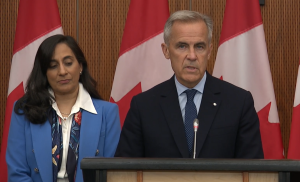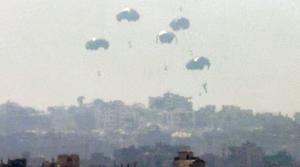Seven mild quakes hit north
An earthquake measuring 3.6 on the Richter scale hit northern Israel on Nov. 16, the seventh tremor in two days. The morning’s earthquake hit near the border with Lebanon, and marked the highest magnitude quake of the seven that began on Sunday evening with a 2.7 tremor, Ha’aretz reported. Residents of the Upper Galilee reported feeling the quake on Nov. 16, according to the newspaper. No injuries or damage were reported. Israel sits on the Syrian-African fault, and mild earthquakes aren’t unusual in the region. Most schools and hospitals in Israel were built before new building codes were enacted, which include earthquake safety regulations, and at least 50,000 residential buildings in Israel don’t meet earthquake-proof standards, according to Ha’aretz.
Fast and prayer to bring rain
Israel’s chief rabbis last week called for a public day of fasting and prayer in order to bring rain to the parched country. Nov. 18 was designated as a day of fasting and prayer to atone for sins the rabbis believe could be contributing to the lack of rain, the Jerusalem Post reported. Israel is in its seventh year of drought, with this winter predicted to be the driest.
Bnei Brak decree condemned
U.S. Jewish groups condemned rulings by rabbis in the Israeli city of Bnei Brak that ban residents from renting apartments to African refugees. The Anti-Defamation League called the decrees, issued this month, “biased pronouncements.” Six leading haredi rabbis in Bnei Brak issued a ruling that followed a similar call in July by rabbis in nearby Tel Aviv. “We encourage the rabbis to follow the Jewish tradition of tolerance and empathy toward other human beings. We call on the religious, political and civic leadership in Israel to stand by the democratic values of acceptance and understanding and speak out against these biased pronouncements,” ADL’s Israel office said. The American Jewish Committee also condemned the decrees.
Israeli firms win GE contest
Two Israeli companies were among the five winners of the GE Ecomagination Challenge. The challenge, launched last July, is part of General Electric’s work to accelerate development of the next generation power grid and global energy transformation through open collaboration. An independent panel of judges selected the ideas, which are designed to create a smarter, cleaner and more efficient electric grid. The winners each will receive $100,000 (US) to develop their ideas. The GridON company of Givatayim created a fault-current limiter to protect the electric grid from disruptions and power outages. The technology was developed in collaboration with Bar-Ilan University and Ricor Ltd. WinFlex of Kiryat Yam produced rotors for wind turbines from light, flexible and inexpensive cloth sheets made of composite materials. Some 4,000 ideas were generated during the challenge.
Israel leaves town
Israel will unilaterally withdraw from Ghajar, a town on its border with Lebanon, Israelss security cabinet decided. The pullout from Ghajar, situated half in Lebanon and half in Israel’s Golan Heights, will take place in co-ordination with the United Nations Interim Force in Lebanon within the next 30 days. The final agreement, including the withdrawal date, will be brought to the Israeli cabinet for a vote to redeploy Israeli troops. The withdrawal satisfies the terms of UN Security Council Resolution 1701 passed after the Second Lebanon War in 2006. The U.S. State Department welcomed the decision and urged Israel and the United Nations “to complete the technical details necessary to implement this proposal rapidly.”
– files from JTA






